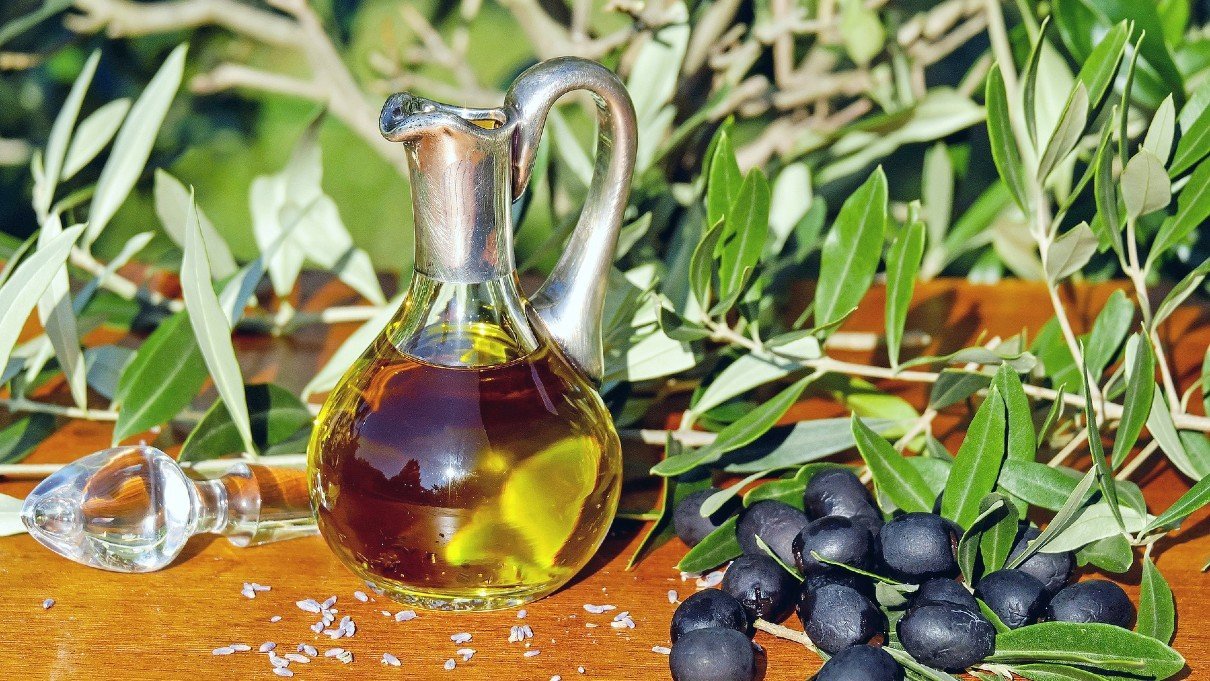Is Olive Oil Bad for the Environment?

Olive oil is one of the most popular and common cooking oils. It enhances the flavor of food and helps cook your meals faster. Its popularity has led to increased production, especially in its native regions of Spain, Greece, Italy, Tunisia, and more.
Anyone who follows the Mediterranean diet is sure to be using plenty of olive oil.
Is olive oil environmentally friendly?
According to the EU’s agricultural European Innovation Partnership (EIP-AGRI), there are over 750 million olive trees cultivated across the world, with 95% of those in the Mediterranean region.
Another report on the environmental impact of olive oil production in the EU identified three broad types of olive plantation:
- traditional plantations that limit chemicals and have high labor,
- more intensive traditional plantations that use synthetic fertilizers and pesticides,
- and modern plantations that rely on high tree density and mechanized systems.
The report found that soil erosion was one of the most serious environmental impacts from olive farming, as many plantations would use “inappropriate weed-control and soil-management practices”, resulting in desertification.
Desertification is often tied to deforestation, but it can also be caused by drought or inappropriate agriculture.
This can also lead to water run-off, which increases soil erosion, water pollution (especially where chemicals are carried by water from farms to rivers and other water bodies), and contamination of groundwater, drinking water, and soil.
While a report in 2009 found that pesticide levels in Greek olive oils were low enough to not pose a health risk, the use of synthetic pesticides can greatly disrupt biodiversity. Worryingly, the report states that only 10% of samples had no residues of any pesticides. Organic olive oil is completely free from synthetic fertilizers and pesticides, so to have such a small amount of organic production shows that many plantations are almost certainly using synthetic agriculture methods.
EIP-AGRI’s 2020 report on olive tree pests and diseases found that climate change is likely to contribute to more pests and diseases. This will ultimately lead to more reliance on pesticides, as well as more water usage as rainfall declines.
Climate change is also expected to decrease olive oil yield and quality, with high temperatures affecting fruit weight, oil concentration, and oil quality. Lower yield will mean more trees will need to be planted to make up for production loss.
Producing olive oil also contributes to environmental harm.
After olives have been harvested from plantations, they are sent to an olive mill and ground into a paste. The oil can then be extracted either using mechanical or chemical methods.
The bulk of the oil from olives can be drained using the mill and centrifugation, leaving behind the pomace (the remains of olives after pressing). Chemical solvents are used to extract 5-10% of the remaining oil, which can then be sold as olive pomace oil.
This process results in plenty of waste, the most environmentally damaging of which is wastewater from both olive mills and olive refineries. Olive oil wastewater is non-biodegradable thanks to the chemicals used in it, is toxic to plants, and cannot be processed by most water treatment facilities.
Estimates of the number of olive oil by-products just for the EU suggest that 9.6 million tonnes are generated per year, including pomace, leaves, and stone.
Wastewater from olive mills has been found to pollute marine environments, causing stress-induced alterations in at least one species of mussels. By draining olive mill wastewater into marine environments, it’s likely that many organisms may be adversely affected, whether with diseases, mortality, or population changes.
Another study found that the large amounts of solid and liquid waste from olive oil extraction have pollutants in yet are still spread on the soil.
More research is needed to determine the environmental impact of this waste and its use agriculturally.
Is olive oil sustainable?
Olive oil isn’t as environmentally damaging as palm oil (thankfully!) but it still has an impact on biodiversity.
Pesticide and water usage are the biggest concerns from plantations themselves, especially with surface water run-off – When too much water is used and not absorbed into the soil, resulting in chemicals from pesticides and fertilizers being carried to nearby water sources.
This can have a great impact on marine environments, especially when using heavy-duty synthetic pesticides known to harm marine organisms and disrupt ecosystems.
Olive oil can be sustainable – provided you buy fairtrade, organic olive oil.
Fairtrade certifications ensure that farmers and laborers are paid a fair wage and support further development.
This can also encourage the use of more sustainable farming practices, the guidance and education of agriculture to help the environment, and allow plantations to use more expensive methods, such as eco-friendly fertilizers.
Fairtrade International’s standards for farmers include:
- Use biological controls over chemical pesticides
- Minimize use of herbicides
- Prevent soil erosion
- Enhance soil fertility
- Train workers on sustainable and efficient water use
- Conserve protected areas, forests, and vegetation
- Prevent deforestation
- Enhance biodiversity
- Raise awareness of rare or threatened species and invasive species
- Reuse organic waste and dispose of hazardous waste
- No use of genetically modified organisms
- Adapt to climate change
- Reduce greenhouse gas emissions
- Ensure good working conditions for workers
- And much more
Fairtrade certifications are especially important, but organic olive oil can also alleviate some troubling unsustainable practices in the olive oil industry.
If you can’t buy fairtrade-certified organic olive oil, make sure to check for organic on its own. It’s better to have one certification than neither.
Any olive oil that isn’t fairtrade or organic is not environmentally friendly.
The more we can switch to certified organic olive oil the less environmental harm is done and the more sustainable our cooking practices are. While this may mean buying more expensive products, the impact it has on sustainability is massive the more we stick to sustainable buying practices.
